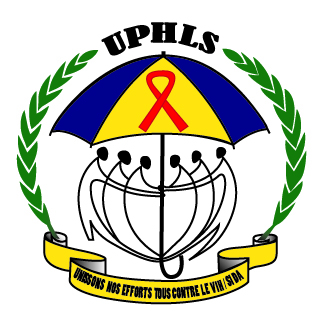UPHLS WASH INTERVENTION FOR PWDs
1. Our Approach
Is built on the principle that having access to better water, hygiene and sanitation programmes is vital for human beings to promote their well-being and living condition. It is a respect of PWDs rights and dignity as well.
2. Disability inclusion in WASH programm
![]() Applying universal design principles to WASH will create greater inclusion for all community members including people with a disability, pregnant women, and the elderly. These focus on good design which is accessible to all.
Applying universal design principles to WASH will create greater inclusion for all community members including people with a disability, pregnant women, and the elderly. These focus on good design which is accessible to all.
![]() The lack of access to infrastructure and the fear of being in humiliating situations in performing the basic needs and private can cause a lower level of hygiene. Various barriers can hinder access to basic sanitation for people with disabilities.
The lack of access to infrastructure and the fear of being in humiliating situations in performing the basic needs and private can cause a lower level of hygiene. Various barriers can hinder access to basic sanitation for people with disabilities.
![]() Increasing accessible WASH facilities in community settings and schools will improve broader education and life outcomes for people with a disability.
Increasing accessible WASH facilities in community settings and schools will improve broader education and life outcomes for people with a disability.
![]() Disability-Inclusive WASH services will also reduce the workload of families in caregiving tasks. Ensuring the inclusion of people with a disability in community-awareness activities will reduce the rate of acquiring and spreading disease.
Disability-Inclusive WASH services will also reduce the workload of families in caregiving tasks. Ensuring the inclusion of people with a disability in community-awareness activities will reduce the rate of acquiring and spreading disease.
3. IN LINE WITH SDG
Rwanda has adopted the objectives of Sustainable development in 2016. Goal 6, 12, and 17 of the SDGs guarantees that everyone will have access to water and sanitation and ensure sustainable management of resources water. In their targets, state parties plan for 2030 aiming to provide all with access to proper Water, Hygiene, and Sanitation (WASH) services, under fair and adequate conditions, to end open defecation, paying attention particularly to the needs of people in a vulnerable situation, including persons with disabilities.
• Social isolation and taboos limit people with disabilities from accessing appropriate WASH services remains critical in the Rwandan context.
• Lack of assistive and supportive devices limits persons with disabilities from using existing available resources, thus exposed to acquiring and/or transferring diseases.
• Inaccessible or distant water sources can force people with disabilities to depend on others for water collection, hygiene, and sanitation.
• People with mobility difficulties, hearing or visual impairments need accessible and safe latrines as well as hygiene facilities in order to better accommodate their needs.
4. Reasons for PWDs inclusion in WASH programs
• Improved access to WASH services help to address the complex and multi-dimensional nature of poverty and vulnerability for PwDs.
• Inclusive WASH services can help to reduce Neglected Tropical Diseases, including diarrhea, typhoid, amibia, malaria and can improve livelihoods and lives of PwDs in the Rwandan society.
• Where marginalized populations are excluded from services, costly alternatives absorb funds that poor people could otherwise use for productive activities and savings, so PwDs are likely to be affected by endless poverty.
Our Current Action
• UPHLS has expertise in inclusive WASH services which provide ministries, MININFRA, MoH, WASAC, schools, and CSO with technical guidance on appropriate water facilities, hygiene promotion, and self-care practices for persons with disabilities.
• UPHLS developed IEC handouts (posters, deliverables, banners, flyers, etc.) for enabling the Rwandan community to better understand the inclusion and access of persons with disabilities to WASH services. Outreach programs on WASH campaigns and dissemination of key information (i.e. management of the menstruation period, the adaptation of WASH services, use of inclusive WASH services, ect.) should be reinforced.
• Technical support to review standards and benchmarks to fit the needs of PwDs in the local context, based on ISO needs to be implemented. For example, child and little people sized toilets, accessible ramps, toilet grab bars, transportable jerry cans, pans, basins, etc.
• UPHLS promotes Holistic and Integrated approaches to promoting inclusive WASH services for persons with disabilities (health, education, HIV care, AIDS treatment, gender equality, and environment) and help overcome cultural taboos around.
- 4 January: World Braille Day
- 8 February: International Epilepsy Day*
- 21 March: World Down Syndrome Day
- 2 April: World Autism Awareness Day
- 13 June: International Albinism Awareness Day
- 25 June: World Vitiligo Day*
- 19-25 September: International Week of the Deaf*
- 28 September: International Day for the Universal Access to Information
- 5 October: World Habitat Day
- 8 October: World Sight Day*
- 10 October: World Mental Health Day
- 17 October: International Day for the Eradication of Poverty
- 29 October: World Psoriasis Day*
- 31 October: World Cities Day
- 3 December: International Day of Persons with Disabilities
- 10 December: Human Rights Day
